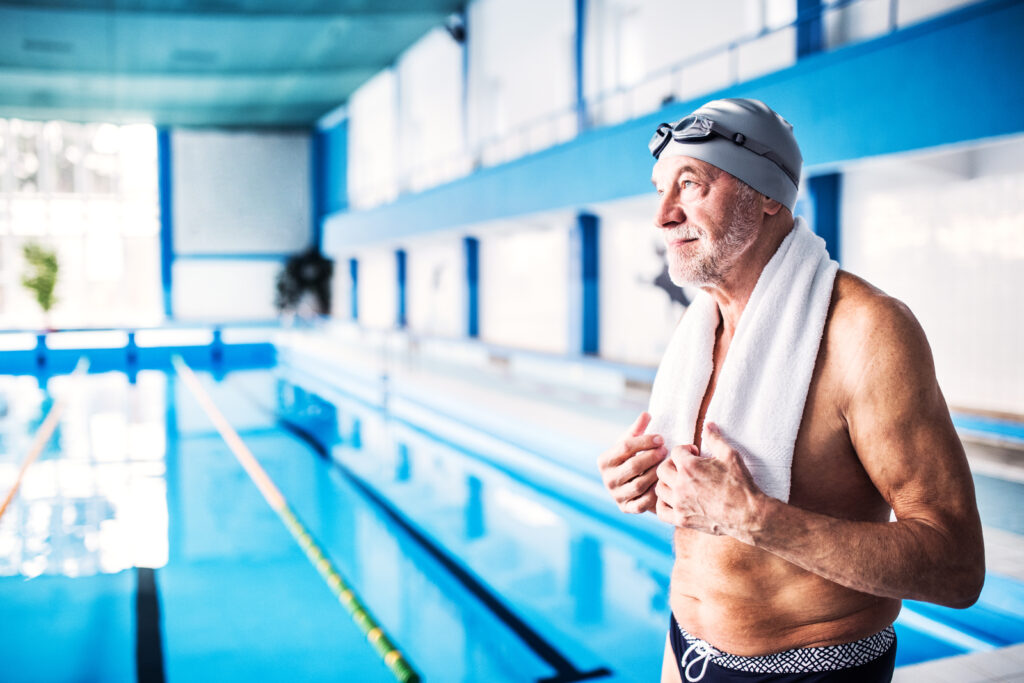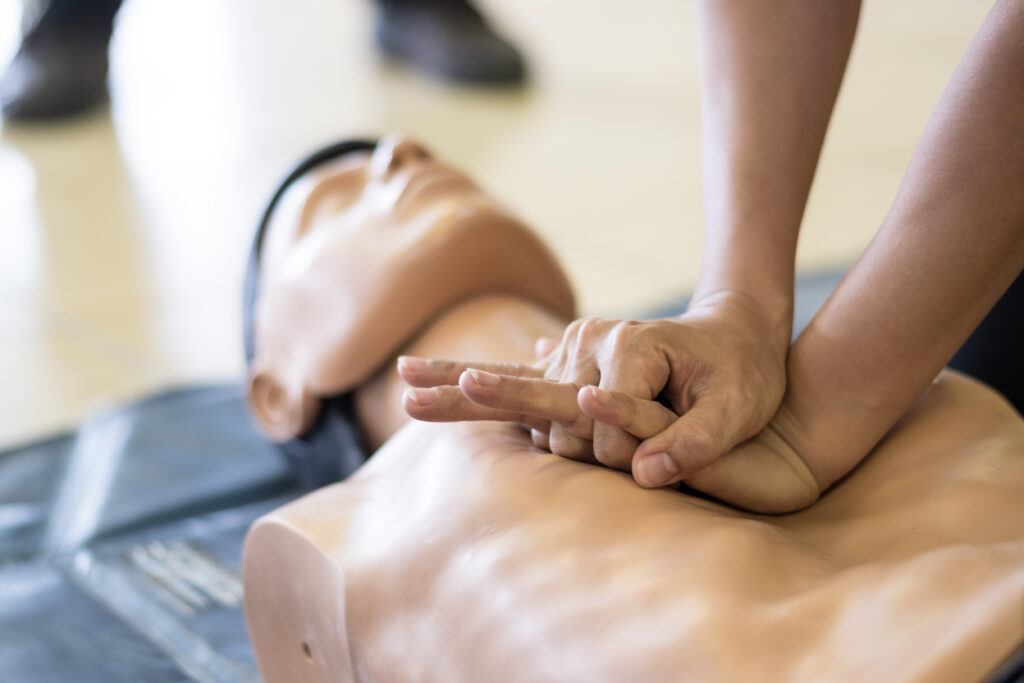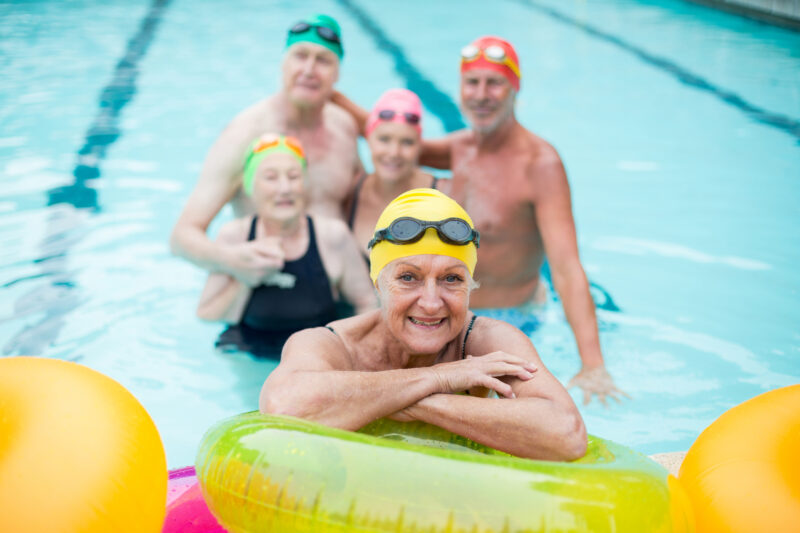Summertime brings longer days and plentiful sunshine. It also beckons us to the water to squelch the heat with family and friends. The easing of recent travel restrictions has many Americans clamoring for beachside bliss. As parents confidently clasp life jackets on their children, it is important to remember that water safety doesn’t stop with little ones. Adults over the age of 65 can be especially vulnerable to water-related accidents or injuries. Here are some senior swimming safety tips to practice.

Risks associated with swimming and water sports are very real and can be very serious. The Center for Disease Control (CDC) reports that around ten people die each day from unintentional drowning. Non-boat related drowning is the fifth-leading cause of unintentional death in the United States. More than half of non-fatal drowning injuries lead to brain damage and long-term disability. Prevention is key to keeping older adults safe when enjoying water activities. Caregivers can also take measures to assure that seniors can safely delight in a dip at their favorite water spot.
Here are some key points to help keep seniors safe during this pool season.
The buddy system still applies.
Whether wading in the lake or water walking at the community pool, be sure your senior is swimming with a friend. If one person is having difficulty, their buddy can alert others of the potential problem. Also, memory problems or dementia don’t need to prevent water fun. The buddy system keeps your senior from wandering off or getting lost.
Use a life jacket.
Life jackets should be worn by everyone in the ocean or open water, as well as while boating and engaging in other water sports. Wearing a life jacket is a wise safety precaution for seniors who cannot swim or are too weak to tread water. Be sure the life jacket is free of holes or tears, and choose one that is appropriate for the height and weight of your senior swimmer.
Keep tabs on the temperature of the air and water.
Water that is too hot directs blood flow to the skin and away from vital organs. Cold water has the opposite effect making the heart pump harder to keep extremities warm. In older adults, water even a couple of degrees colder than core body temperature can result in hypothermia. Out of the water, pay attention to potential signs of overheating, and keep your senior hydrated and cool.

Check with your healthcare provider before making the plunge.
For example, a senior with a vulnerable immune system may want to avoid swimming in untreated water. Many medications prevent spending extended periods outside in the sun. Be sure to follow any instructions associated with the use of medical devices and swimming. Seniors should not participate in water activities if ill with fever or gastrointestinal issues.
You are never too old to learn how to swim.
Individual or group swim lessons for older adults are offered at many locations. Lessons allow seniors to feel comfortable in the water, learn basic swim safety, and build skill at their own pace. A bad experience with water during formative years may have prevented a senior from learning to swim. A good instructor will understand their hesitancy and help to build confidence. You can always teach an old fish new tricks.
Watch your step on slippery surfaces.
Slips and falls are more frequent in the senior population on dry land, so wet surfaces only add to the danger. Take it slow, and wear sandals or other water appropriate footgear to get a better grip on the ground. Use handrails when available, or even better, walk with someone while on slippery surfaces. Keep walkways and pool decks clear of tripping hazards like hoses, chairs and pool toys. Combining a hard surface and the constant presence of water means an increased risk of falling, but simple steps can prevent the likelihood of injury.

Learn CPR.
Prevention of water-related accidents is most important, but you also want to be prepared in the event of an accident. Cardiopulmonary resuscitation, or CPR, is a vital skill to have around pools or bodies of water. CPR is a medical technique that uses chest compressions and forced breathing through the mouth to improve oxygenation and blood circulation. CPR greatly increases chances of survival in an emergency. CPR may be required for someone with a head injury, during cardiac arrest or drowning. Check with local organizations such as the American Red Cross to sign up for CPR training. It could save a life.
Older adults can enjoy the water safely, and caregivers can relax knowing their senior is having fun. It just takes common sense and planning. Water play has many physical health benefits for the senior population. Moreover, it boosts mental health by reducing stress levels and providing socialization to a sometimes isolated community. So let your senior splash!
